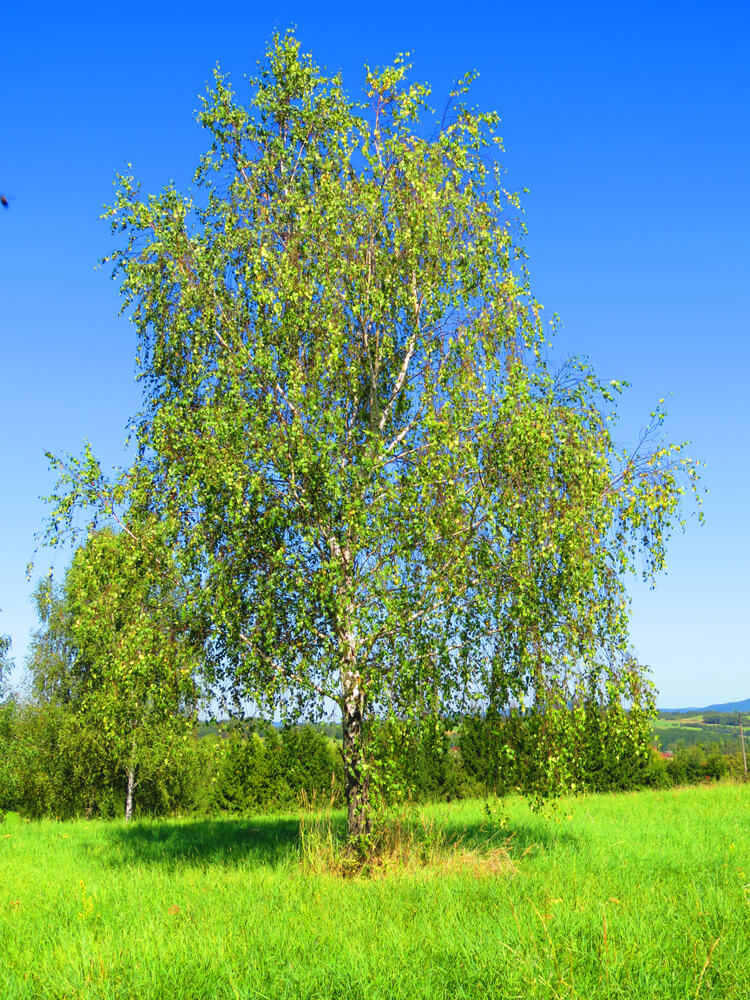Betula pendula 75L bag TREE DECIDUOUS
$350.00
Betula is a genus of deciduous trees and shrubs in the Betulaceae family. They are native to temperate and boreal regions of the world, including North America, Europe, and Asia. Here are some horticultural notes on the genus Betula:
Growing conditions: Betula species prefer full sun to partial shade and well-drained soil. They are adapted to cool, temperate climates and can tolerate cold temperatures.
Propagation: Betula can be propagated from seed or by cuttings. Seeds should be sown in the fall and will require stratification (cold treatment) before germination. Cuttings can be taken in the summer and rooted in a well-draining soil mix.
Watering: Betula should be watered deeply and infrequently. They are adapted to moist conditions but can tolerate periodic periods of drought.
Fertilizer: Betula trees benefit from regular fertilization with a balanced fertilizer. Fertilizer should be applied in the spring and fall.
Pruning: Prune Betula trees in the late winter or early spring, before new growth begins. Remove any dead or crossing branches. Avoid heavy pruning, as it can damage the tree’s natural form.
Pests and diseases: Betula trees are relatively disease-free. However, they may be susceptible to leaf miner and aphid infestations. Regular monitoring and treatment with insecticides may be necessary.
Uses: Betula species are often used for ornamental purposes, such as in landscaping or as specimen trees. They produce showy catkins in the spring and have attractive bark, which may be smooth or peeling. The wood of some species is used for construction, furniture, and other woodworking purposes. The bark of some species is used for tanning leather.
Out of stock
Description
- Family Name: Betulaceae
- Origin: Europe
- Characteristics:
- Foliage Colours: Green, Yellow
- Flower Colours: Insignificant
- Flower Fragrant: No
- Flowering Season: N/A
- Fruit: Yes
- Landscape Use(s): Borders / Shrubbery, Container / Pot,
Cottage Garden, Courtyard, Feature, Foliage Feature / Colour,
Formal Garden, Hedging / Screening, Mass Planting, Shade
Tree
- Pest & Diseases: Aphids, Borers, Rust
- Plant Care: Keep Moist During Dry Periods, Mulch Well
- Requirements:
- Growth Rate: Moderate
- Maintenance Level: Medium
- Water Usage: Medium
- Tolerances:
- Drought: Moderate
- Frost: High
- Wind: High
- Cultural Notes: Prefers full sun and moist, acid to alkaline soils. Prune only if necessary. Quite self-sufficient.


